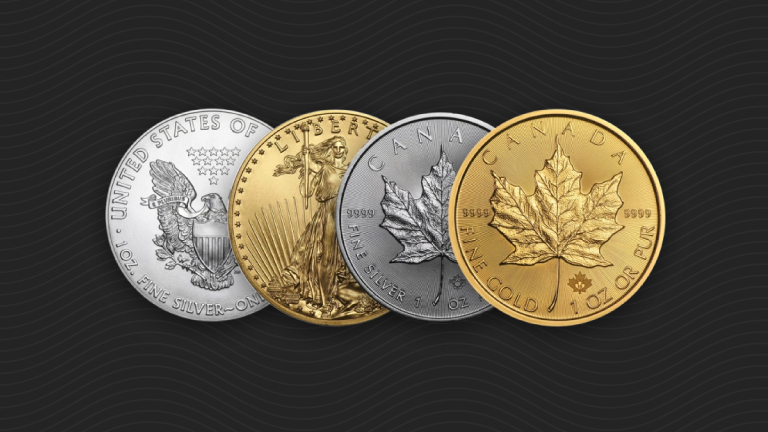The Perils of a Parasite Economy (Video)
John Stossel and Peter Schiff discussed why the bailout of the big banks during the 2008 financial crisis simply laid the groundwork for a more severe economic calamity. If the free market were allowed to function, short-term economic pain would be overcome by a more fundamentally sound and independent economy. Unfortunately, Peter observes that the United States seems committed to behaving like an irresponsible banana republic.
Follow along with this transcript of the interview:
Peter: It would have been very difficult [if we hadn’t bailed out the banks], no question about it. But I think it’s going to be worse now that we did bail them out. But first of all, you have to realize why did the banks make all those risky loans? Why did they act the way they did? It was because the government created the perverse incentives to do so by guaranteeing all the bank deposits, by guaranteeing all the mortgages. The banks acted recklessly. In a free market, they wouldn’t have taken those risks. Their depositors wouldn’t have allowed it, because they would have taken their money out of the risky banks. But because of the moral hazard by the government, everybody was taking risks.
Stossel: Government created a parasite economy. They funded Freddie and Fanny and said, ‘Loan to everybody. Low down payments.’
Peter: If the free market was allocating mortgage credit, you wouldn’t have this reckless behavior. It was the government guarantee that corrupted everything and led to the financial crisis.
Stossel: But the housing people all lobby the government – ’You have to support housing.’ They’re parasites, right?
Peter: Every business is going to go to government with their hat in hand looking for a subsidy. That’s why we have to limit the power of government to provide those subsidies.
Stossel: But if the banks failed and credit froze – it did briefly – what do you think would have happened?
Peter: I think it would have been worse than it was, but I think we would have a much safer, sounder system today because we would have made real reform. Instead, we just made the system worse. We have the government even more involved in the housing market. I think the crash that’s coming is going to be even worse than the one we had in 2008 and the financial crisis much bigger.
Stossel: But if we had let it fall then, people would have worked out new things. Maybe, if you couldn’t borrow from the bank, you would have used Paypal or new banks would have appeared – the community banks in small towns that weren’t so overextended.
Peter: Absolutely. Instead, some of the smaller banks that actually should have been rewarded, that should have been allowed to grow their market share, they were actually punished. Because now the too-big-to-fail banks that now have extra guarantees, it’s now harder to compete with them. So the too-big-to-fail banks that we bailed out are all much bigger now because we bailed them out. The next time they fail, it’s going to be much more expensive.
Stossel: The bailout and the parasite behavior takes two forms. It wasn’t just in the $400 billion that Bush gave them. They actually guaranteed $700 [billion] and they took $400. But the Fed basically printed $4 trillion… A dozen old people got together and said, ‘We’ll have $4 trillion sloshing around the economy.’
Peter: Well, it didn’t slosh around the economy, it sloshed around Wall Street. We’re not producing more stuff. We’re just borrowing and consuming, and we have people who are getting wealthy on paper. But a lot of this paper wealth is going to evaporate when this gigantic bubble bursts.
Stossel: And to push back, it hasn’t burst yet. You predicted great inflation several years ago. Hasn’t happened.
Peter:We’re going to have it. Sometimes you see things early. I was warning about the housing bubble for years before it burst. I think I’m early when it comes to inflation. But I think the rate of increase is going to accelerate at some point when we eventually have a dollar crisis. It’s going to be much, much worse than what it would have been had we taken our medicine in 2008 and learned from our mistakes instead of repeating them, and then actually reformed.
Stossel: Much of this money that the Fed created comes from something quantitative easing. Few people understand what this means. I like how this cartoon deals with it…
Cartoon: Did you hear about the Fed? No, what about the Fed? They announced another round of the quantitative easing. What does that mean? It means they are going to make large asset purchases. What does that mean? It means they are going to expand their balance sheet and buy Treasuries. What does that mean? It means they are going to print a ton of money.
Peter: This is what banana republics do. There has never been a country that has gone down this road where it didn’t end in disaster. And I don’t think we’re going to be the exception to that rule.
Get Peter Schiff’s latest gold market analysis – click here – for a free subscription to his exclusive weekly email updates.
Interested in learning more about physical gold and silver?
Call 1-888-GOLD-160 and speak with a Precious Metals Specialist today!

